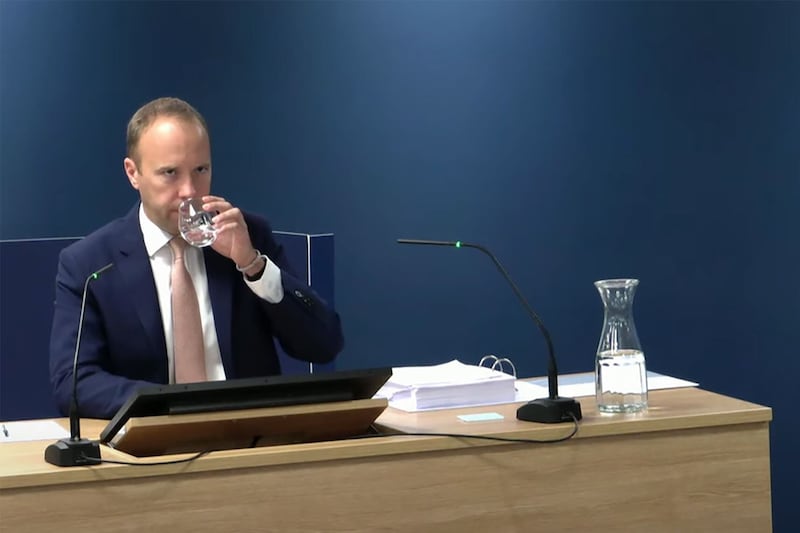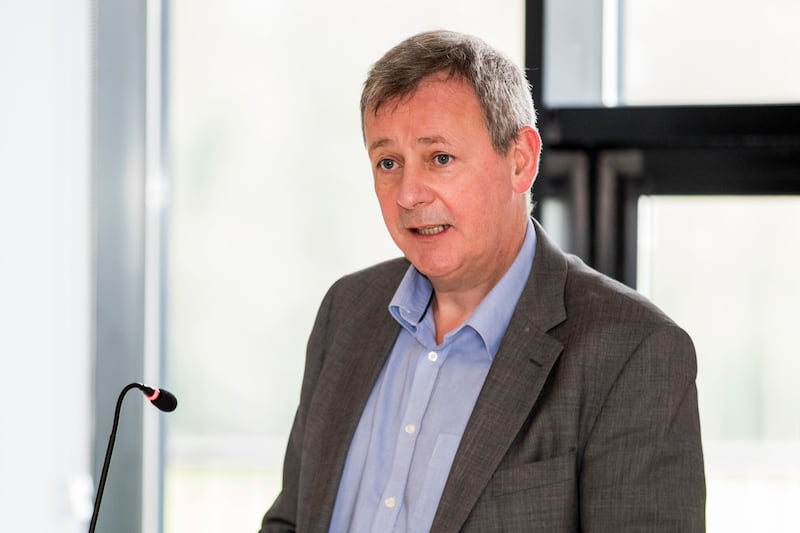A Northern Ireland woman has said the trauma of losing her mother during the pandemic means she feels unable to visit her graveside.
Brenda Doherty from the NI Covid-19 Bereaved Families for Justice campaign lost her 82-year-old mother Ruth Burke during the early stages of the pandemic.
At the opening of the UK Covid-19 inquiry in London today, Ms Doherty was featured alongside Catriona Myles - who lost her father Gerry McLarnon (67) - in a video sharing the experiences of bereaved families.
During her contribution, Ms Doherty said she felt like she was unable to protect her mother in her final hours.
“Mum was our world,” she said.
Read more:
Bereaved families hold pictures of loved ones in vigil outside Covid inquiry
UK may ‘not have been well prepared at all' for pandemic, Covid inquiry hears

“I could just imagine mummy, on her own. You know, what was it like for her? What was her last 12 hours like?"
“All sorts of images and thoughts of mummy were in my head about how she had protected us for all our lives.
“And in the final hours when she really needed us, none of us could be there.”
After receiving a call to say her mother had passed, Ms Doherty was also told her mother’s possessions had to be incinerated.
“In Northern Ireland, a wake is a very important part of the grieving process. That didn’t happen.
"I don’t go to the cemetery now because when I go to the cemetery I see the red and white tape. I see the men in their white suits and their masks,” she said.
“I see them putting their hand up telling me I can’t go towards the graveside. I relive that. I hear them tell me our time is up.
“You know, our time was up. We all had to walk off individually and go home to our own houses. There was no coming together.
“My mum didn’t get a celebration of her life. And, as a daughter, that makes me feel I failed her.”
She added: “The grief I have is my love and I just need to find a way to channel it. I think it’s a very important part of history and history has to reflect the truth of what happened to families like mine."

Another woman, Catriona, described the impact of losing her 67-year-old father to hospital-acquired Covid on December 23, 2020.
“The circumstances surrounding the lead up to his death and his eventual demise will haunt us for the rest of our lives,” she said.
“At the end of anyone’s time, the most you can hope is to give your loved one a good death and we will forever carry the guilt that our daddy was denied that.”
Acknowledging that society had become “tired of the whole thing,” she added: “But for us, those missing parts, they’re there for a reason in the grief process and there’s no way to navigate round those things."
Today we begin public hearings for Module 1 investigating pre-pandemic preparedness and resilience in the UK, at 10:00am.
— UK Covid-19 Inquiry (@covidinquiryuk) June 13, 2023
Watch it on our YouTube channel, subject to a three minute delay: https://t.co/n03rrwuLGm pic.twitter.com/4AR1ruAuls
“You have to go through those and being denied those, it’s a vital part of us being able to move on.
“And ultimately, in order for us to move on we need to know that lessons will be learned and that future generations will be safeguarded from the heartache that we have had to suffer.”

Earlier, the Covid 19 Bereaved Families for Justice UK group staged a protest outside the inquiry over concerns that family members were not being given enough opportunities to give evidence.
The group also said that Northern Ireland must not become "a footnote in a UK-wide inquiry".
The first stage of the inquiry is expected to last around six weeks, focusing on whether the pandemic was properly planned for and “whether the UK was adequately ready for that eventuality”.
Split into six modules, the public hearings are set to end by summer 2026 with interim reports published before then.
Read more:
Bereaved families hold pictures of loved ones in vigil outside Covid inquiry
UK may ‘not have been well prepared at all' for pandemic, Covid inquiry hears







